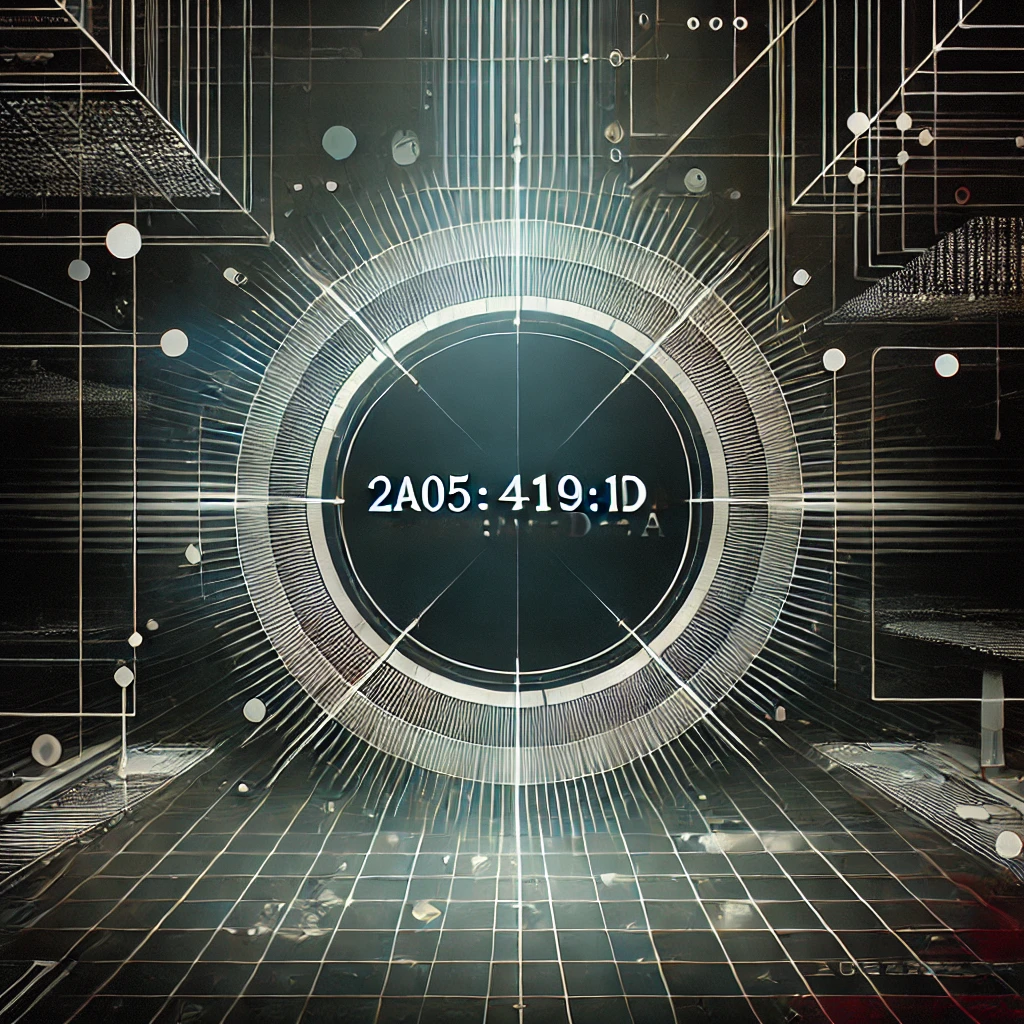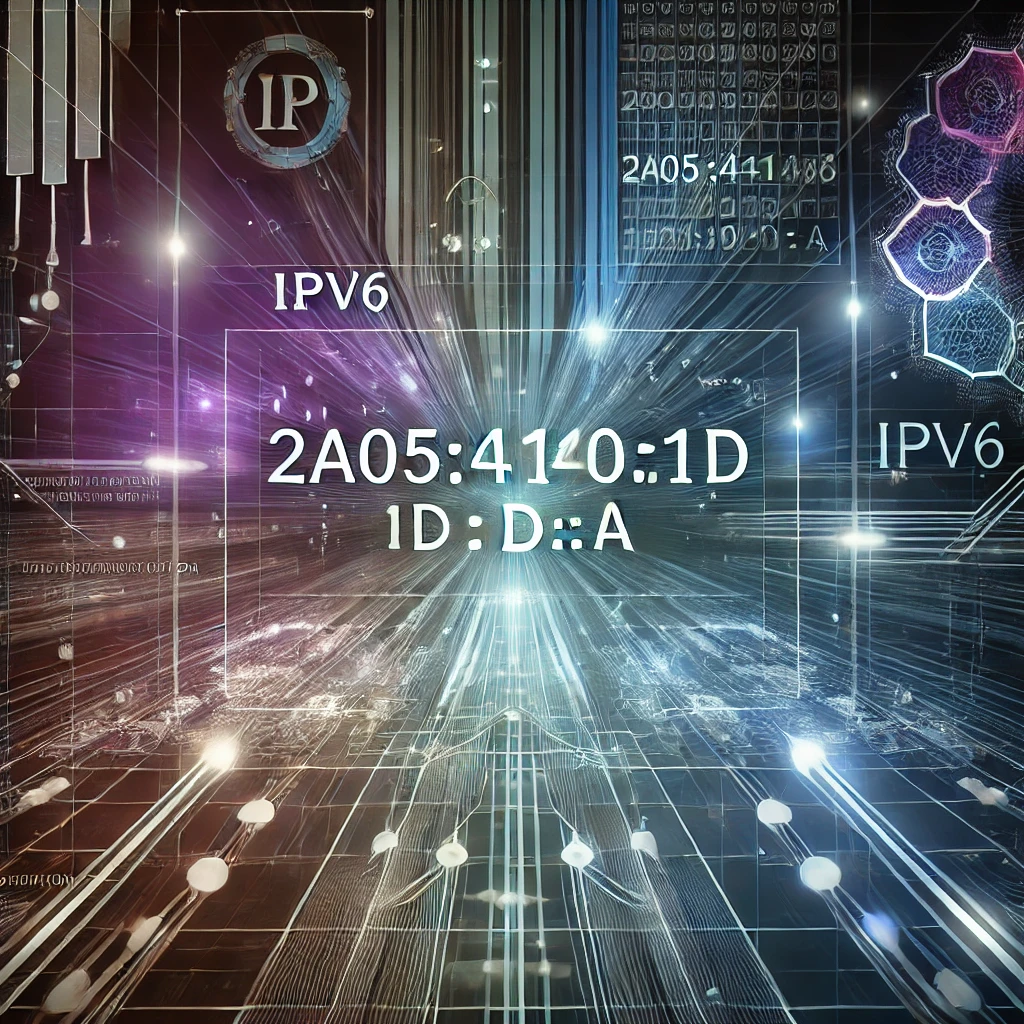Let’s talk about the IPv6 address “2a05:4140:19:d::a.” If you’ve been hearing about IPv6, you might already know it’s the next-gen IP addressing system, replacing IPv4’s limited space.
So, what’s the deal with 2a05:4140:19:d::a?
Let’s break it down simply without a tech overload.
Why Should You Care About 2a05:4140:19:d::a?
Ever notice your devices needing more internet “space” to function smoothly? IPv6 addresses like 2a05:4140:19:d::a solve this by offering massive address pools, ensuring smooth connectivity for our growing number of gadgets. IPv4 ran out of room, while IPv6 can accommodate billions of devices.
In a world of smart homes, cloud computing, and endless online access, this expansion is essential. And no, it’s not just tech folks who should care. Everyone using the internet benefits from IPv6!

What Makes 2a05:4140:19:d::a Different?
IPv6 addresses aren’t as simple as IPv4’s easy-to-remember numbers. IPv6 addresses, including 2a05:4140:19:d::a, are written in hexadecimal format, separated by colons instead of dots.
IPv6 works with 128-bit addresses compared to IPv4’s 32 bits. Imagine a phone book that can now hold billions of entries instead of just thousands.
IPv6 isn’t about complex numbers; it’s about efficiency. An address like 2a05:4140:19:d::a is already optimized for functionality and space. So, despite looking long, it’s designed to make sure our gadgets connect without hassle.
Breaking Down 2a05:4140:19:d::a
To simplify 2a05:4140:19:d::a:
- The initial blocks (2a05:4140:19) refer to network-specific identifiers.
- “d” is a subnet ID.
- ::a? That’s shorthand to save space, representing a series of zeros ending in “a.”
These blocks make routing efficient by categorizing and pinpointing each address on the internet.
Real-World Benefits of IPv6:
Let’s dig into how IPv6 addresses like 2a05:4140:19:d::a matter in the real world.
- More Secure Connections: IPv6 has built-in security features. For instance, it enables IPsec to secure communication, which wasn’t mandatory in IPv4. When using IPv6, your data can move more securely across networks.
- Easier Communication Between Devices: Want to set up a smart home? Each device gets a unique IPv6 address like 2a05:4140:19:d::a, making device-to-device communication seamless and fast. IPv6 addresses allow better automation, whether you’re controlling lights, thermostats, or speakers.
- Efficient Data Transfers: Imagine a delivery system without any roadblocks. IPv6 makes data transfers quicker by reducing the need for Network Address Translation (NAT). With addresses like 2a05:4140:19:d::a, devices get a unique IP, cutting down connection steps and speeding things up.
Common Concerns About IPv6
- Does IPv6 Slow Things Down?
Nope. IPv6 can actually improve speeds by simplifying device connections. Addresses like 2a05:4140:19:d::a are designed for efficiency. - Is IPv6 More Complex?
On the surface, yes, IPv6 looks more complicated than IPv4. But for everyday users, it doesn’t make things harder. IPv6 just runs behind the scenes, making sure everything connects reliably. - Does Everyone Have IPv6 Yet?
Not yet. While it’s widely adopted, some regions and devices are still catching up. But it’s growing fast, as IPv4 addresses are in short supply. Check your router or ISP; many already support IPv6 by default.
Key Features of IPv6 and How They Help
IPv6 comes packed with features. Let’s highlight a few in simple terms.
- End-to-End Connectivity: Each device gets its own IP, which means direct communication without the middleman (NAT). Whether you’re a gamer, streamer, or remote worker, this makes connections faster.
- Simplified Routing: No more middle stages. Devices connect directly using addresses like 2a05:4140:19:d::a, reducing delays.
- More Room for Growth: IPv4 was maxed out. With IPv6, each device can have a unique IP without conflicting with others, perfect for IoT and smart devices.
What About Privacy with IPv6?
A unique address sounds concerning privacy-wise, right?
IPv6 does offer privacy extensions that randomize part of your IP address, making it harder for others to track. So, addresses like 2a05:4140:19:d::a still keep your details secure.
Comparing IPv4 and IPv6 – What Changes?
Here’s a quick breakdown of how IPv4 and IPv6 differ, just for clarity:
- Address Length: IPv4 uses 32 bits, while IPv6 uses 128 bits.
- Capacity: IPv4 had about 4.3 billion addresses. IPv6 has…a lot more. (Think trillions of trillions!)
- Address Format: IPv4 is dot-separated (like 192.168.0.1), whereas IPv6 uses colons (2a05:4140:19:d::a).
- Security: IPv6 includes IPsec for security right out of the box.

FAQ About IPv6 and 2a05:4140:19:d::a
How does IPv6 handle traffic better than IPv4?
With addresses like 2a05:4140:19:d::a, IPv6 can handle more devices, minimizing network congestion. Each device gets a unique address, so traffic flows faster.
Why does 2a05:4140:19:d::a look so complex?
IPv6 addresses may look confusing, but they’re built to save space and simplify routing. By using hexadecimal and shorthand notations, IPv6 fits into modern data demands.
Does every device have an IPv6 address now?
Not quite yet. While IPv6 adoption is expanding, it’s still rolling out across networks. Many new devices support both IPv4 and IPv6, ensuring compatibility.
Can IPv6 improve my internet speed?
It might. IPv6 reduces NAT-related delays, making some connections more direct, which can improve speeds.
How can I check if I’m using an IPv6 address?
You can see if your device has an IPv6 address in your network settings. If you spot something like 2a05:4140:19:d::a, you’re already on IPv6!
Wrapping Up IPv6: Why 2a05:4140:19:d::a Is the Future
IPv6 addresses like 2a05:4140:19:d::a may seem like just a bunch of numbers, but they’re powering the future of internet connectivity.
With its massive address space, streamlined routing, and better security, IPv6 is here to stay, ready to handle the expanding internet and all our digital needs.
The shift from IPv4 to IPv6 means better performance and more secure connections. And while the transition is still in progress, it’s clear that IPv6 is the answer for a connected future.

